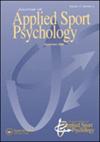对新手运动心理学从业者自我保健体验和认知的定性探索
IF 3.2
2区 心理学
Q2 HOSPITALITY, LEISURE, SPORT & TOURISM
引用次数: 6
摘要
摘要来自心理学和心理健康专业的学者们以前已经确定了自我护理对提高从业者个人和职业幸福感以及适合实践的价值。尽管取得了这些进展,但运动心理学从业者的自我护理受到了学者们的有限关注,现存的研究很少调查资深从业者的自我保健。因此,目前对新手从业者如何理解、体验和实施自我护理知之甚少。在目前的研究中,我们旨在更好地理解SPP在个人职业发展早期的自我护理。基于本体论相对主义,我们招募了18名居住在英国的白人新手SPP(12名女性和6名男性),年龄在24至52岁之间 年(法师 = 31.94,SD年龄 = 7.81),参加半结构化访谈,我们在访谈中探讨了他们在培训期间实施自我护理的经历。在对数据进行反射性主题分析后,构建了五个主要主题。这些主题是:(a)自我护理对新手SPP意味着什么,(b)自我护理的基石,(c)是什么促进了新手的自我护理,(d)新手面临的自我护理障碍,以及(e)新手实施的自我护理行动。这些发现有助于探索SPP人群中自我护理的新生文献,并有助于更好地阐明新手SPP对自我护理的理解,以及他们如何看待自己与职业的互动,以影响他们实施自我护理的能力。讨论了目前在SPP培训途径和就业环境中缺乏对自我护理的重视,以及在当前和未来的新手群体中提高自我护理意识的关键考虑因素。 摘要:在本研究中,我们探讨了18名运动心理学新手(SPP)的自我护理经历。对访谈数据的分析确定了自我护理对新手SPP的意义,支撑自我护理的关键机制,如自我意识,以及与参与自我护理相关的促进和挑战方面。应用启示新手运动心理学从业者认为,进行自我护理有利于积极的工作与生活平衡以及他们的整体发展。自我护理实践中自我意识和心理灵活性等机制的发展可能有利于促进新手的有效自我护理。雇佣组织、监管机构和教育机构需要做出更大的努力,以更好地传达培训期间自我护理的重要性。本文章由计算机程序翻译,如有差异,请以英文原文为准。
A qualitative exploration of neophyte sport psychology practitioners self-care experiences and perceptions
Abstract Scholars from the psychology and mental health professions have previously identified the value of self-care for enhancing practitioners personal and professional well-being, and fitness to practice. Despite these advances, self-care in sport psychology practitioners has received limited attention from scholars, with the few extant studies investigating senior practitioners’ self-care. As such, there currently exists little understanding of how neophyte practitioners understand, experience and enact self-care. In the current study, we aimed to better understand SPP self-care early in individuals’ professional development. Grounded in ontological relativism, we recruited 18 self-identified white neophyte SPPs residing in the United Kingdom (12 females and 6 males), aged between 24 and 52 years (Mage = 31.94, SD age = 7.81), to take part in semi-structured interviews in which we explored their experiences of enacting self-care during their training. Five main themes were constructed following a reflexive thematic analysis of data. These themes were: (a) What self-care means to neophyte SPPs, (b) The cornerstones of self-care, (c) What facilitates neophyte’s self-care, (d) The self-care hurdles that neophytes face and (e) The self-care actions that neophytes implement. These findings contribute to the nascent body of literature exploring self-care within SPP populations and serve to better illuminate neophyte SPPs’ understanding of self-care and how they perceive their interactions with the profession to impact their ability to enact self-care. The current lack of emphasis on self-care in SPP training pathways and employment settings as well as key considerations for the development of greater self-care awareness within current and future neophyte cohorts is discussed. Lay summary: In this study we explored the self-care experiences of 18 neophyte Sport Psychology Practitioners (SPPs). Analysis of interview data identified the meaning of self-care to neophyte SPPs, the key mechanisms, such as self-awareness, that underpin self-care as well as the facilitating and challenging aspects related to engaging in self-care. APPLIED IMPLICATIONS Neophyte sport psychology practitioners perceive engaging in self-care to be of benefit to a positive work-life balance and their holistic development. The development of mechanisms such as self-awareness and psychological flexibility in one’s self-care practices may be beneficial to promoting effective self-care for neophytes. Greater efforts from employing organizations, regulatory bodies and educational institutions are needed to better communicate the importance of self-care during training.
求助全文
通过发布文献求助,成功后即可免费获取论文全文。
去求助
来源期刊
CiteScore
6.90
自引率
9.40%
发文量
39
审稿时长
>12 weeks
期刊介绍:
The Journal of Applied Sport Psychology (JASP) is a refereed journal designed to significantly advance thought, theory, and research on applied aspects of sport and exercise psychology. Submissions such as experimental studies, qualitative research, correlational studies, case studies, position papers, critical reviews, theoretical developments specific to applied research conducted in sport and/or exercise settings, or having significant applied implications to sport and exercise, are appropriate content for the JASP. Please see the recent Editorial for further details on the aims and scope of the journal. JASP is a non-proprietary journal that is an official publication of the Association for Applied Sport Psychology (AASP). The purpose of AASP is to promote the development of psychological theory, research, and intervention strategies in sport and exercise psychology. The Journal is a direct benefit of membership in AASP and is received by its student and professional members. The publisher of the JASP is Taylor and Francis, Inc. of Philadelphia, PA.

 求助内容:
求助内容: 应助结果提醒方式:
应助结果提醒方式:


